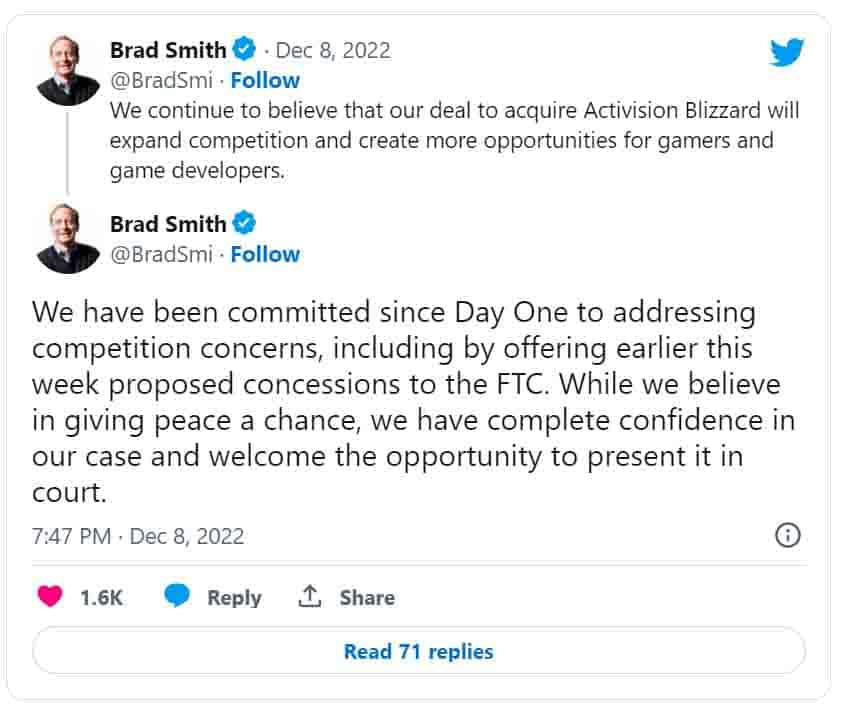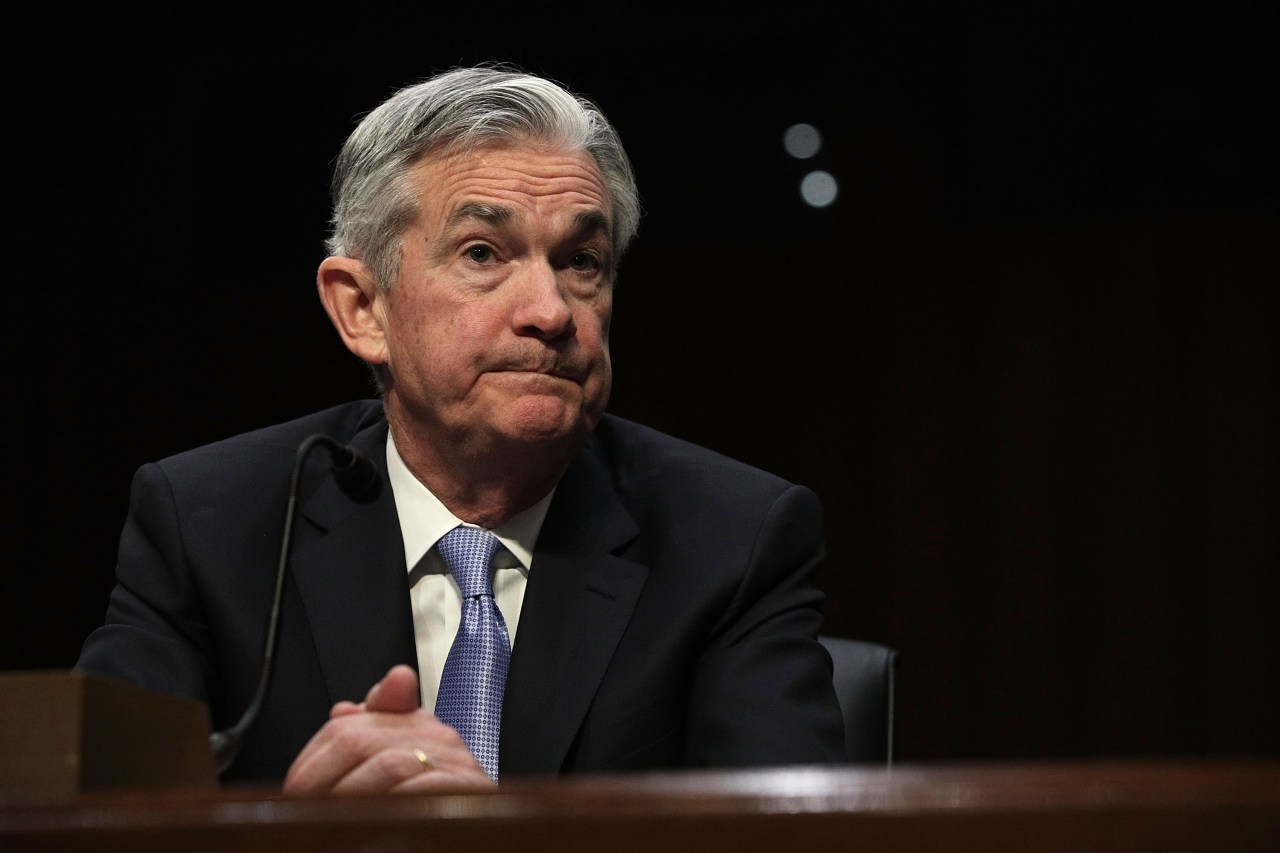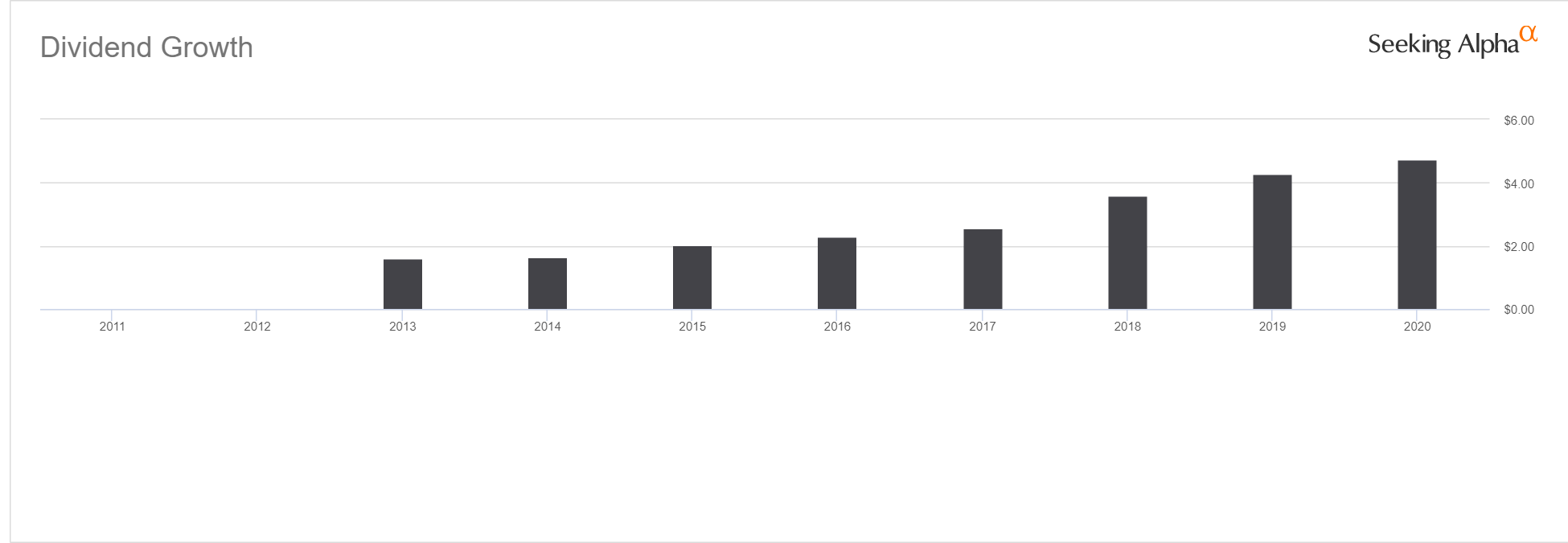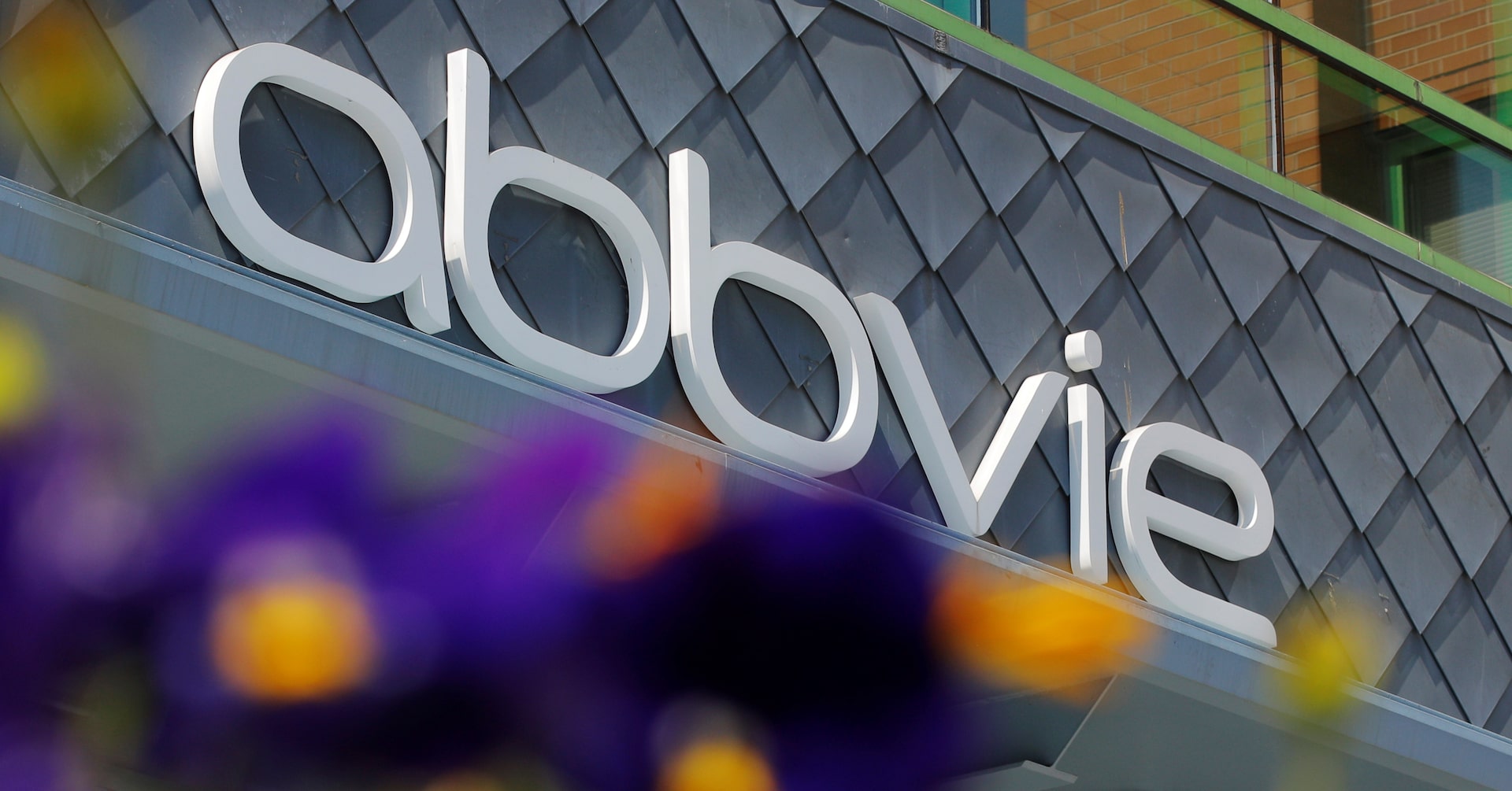FTC's Appeal Against Microsoft's Activision Buyout

Table of Contents
The FTC's Case Against the Merger
The FTC's core argument centers on the belief that the Microsoft-Activision Blizzard merger would create an anti-competitive monopoly, harming both consumers and the gaming industry's overall health.
Concerns about Anti-Competitive Practices
The FTC argues that this acquisition would grant Microsoft an unfair competitive advantage, potentially stifling innovation and harming consumers. Their concerns primarily revolve around:
- Restricted Access to Key Titles: The FTC highlights the potential for Microsoft to restrict access to popular Activision Blizzard franchises, like Call of Duty, on competing platforms such as PlayStation and Nintendo Switch. This could lead to these games becoming exclusive to Xbox, giving Microsoft an unfair advantage in the console market.
- Price Increases and Reduced Innovation: The lack of competition, the FTC argues, could lead to higher prices for games and a decrease in innovation as Microsoft would have less incentive to compete on price or features.
- Leveraging Market Dominance: The FTC's case cites previous merger precedents, arguing that Microsoft's immense market power, coupled with Activision Blizzard's popular titles, would create a situation of undue market dominance.
The Role of Cloud Gaming
The FTC also emphasizes the burgeoning cloud gaming market and Microsoft's potential to exploit the Activision Blizzard acquisition to dominate this sector.
- Control of Game Catalogs: The FTC claims that controlling Activision Blizzard's extensive game catalog would give Microsoft an insurmountable lead in cloud gaming subscriptions, effectively locking out competitors.
- Stifling Innovation in Cloud Gaming: By controlling a vast library of popular games, Microsoft could stifle innovation and competition in the cloud gaming space, hindering the development of alternative services and limiting consumer choice.
Microsoft's Defense Strategy
Microsoft counters the FTC's claims, arguing that the merger will ultimately benefit gamers and foster increased competition.
Promises and Commitments
Microsoft's defense rests heavily on its promises to maintain Call of Duty availability on competing platforms.
- Long-Term Agreements with Competitors: Microsoft has offered long-term contracts to Sony and Nintendo, guaranteeing continued access to Call of Duty on their platforms. These agreements aim to demonstrate Microsoft's commitment to fair competition.
- Increased Innovation and Access: Microsoft asserts that the merger will lead to increased innovation and expand game access for gamers across various platforms, ultimately enriching the gaming experience.
Legal Precedents and Arguments
Microsoft's legal team is challenging the FTC's antitrust claims using various legal precedents.
- Challenging Antitrust Claims: Microsoft's legal strategy focuses on demonstrating that the merger will not substantially lessen competition in the gaming market.
- Competitive Landscape Argument: Microsoft argues that the gaming market is highly competitive and the merger will not create a monopoly. They highlight the presence of other major players in the market.
- Focus on Consumer Benefits: Microsoft's defense highlights the benefits for gamers, such as access to more games and new technologies, as a counterpoint to the FTC's concerns.
Potential Outcomes and Implications
The outcome of the FTC's appeal holds significant implications for the gaming industry and beyond.
Scenarios Following the Appeal
Several outcomes are possible:
- FTC Victory: An FTC win would block the merger, setting a strong precedent for future tech mergers and acquisitions.
- Microsoft Victory: A Microsoft victory would pave the way for the acquisition, potentially reshaping the gaming landscape.
- Negotiated Settlement: A compromise might involve Microsoft agreeing to concessions, such as stricter regulatory oversight or commitments to maintain game availability on competing platforms.
Each scenario carries distinct implications for market share, future mergers, and the overall competitive landscape of the gaming industry.
Wider Implications for the Tech Industry
This case sets a crucial precedent for the tech industry as a whole:
- Future Mergers and Acquisitions: The ruling will significantly impact future mergers and acquisitions in the tech sector, influencing the level of regulatory scrutiny.
- The Role of Regulatory Bodies: The case highlights the increasing role of regulatory bodies in overseeing large tech mergers and their impact on competition and consumer welfare.
- Long-Term Effects on Competition and Innovation: The outcome will shape the balance between competition and innovation within the tech sector for years to come.
Conclusion
The FTC's appeal against Microsoft's Activision Blizzard buyout is a pivotal moment for the gaming industry and the tech sector. The outcome will profoundly impact the competitive landscape, setting a precedent for future mergers and acquisitions and the role of regulatory bodies. Staying abreast of this ongoing legal battle is critical for anyone invested in the future of gaming. Keep updated on the latest developments in this FTC appeal against the Microsoft Activision buyout – the future of gaming may well hinge on its resolution.

Featured Posts
-
 A Tough Road Ahead The Next Federal Reserve Chair And The Trump Era
Apr 26, 2025
A Tough Road Ahead The Next Federal Reserve Chair And The Trump Era
Apr 26, 2025 -
 Blockchain Analytics Leader Chainalysis Integrates Ai With Alterya Purchase
Apr 26, 2025
Blockchain Analytics Leader Chainalysis Integrates Ai With Alterya Purchase
Apr 26, 2025 -
 Abb Vie Abbv Stock Surges As Updated Profit Guidance Exceeds Expectations
Apr 26, 2025
Abb Vie Abbv Stock Surges As Updated Profit Guidance Exceeds Expectations
Apr 26, 2025 -
 Are Chinese Cars The Next Big Thing A Look At The Global Auto Market
Apr 26, 2025
Are Chinese Cars The Next Big Thing A Look At The Global Auto Market
Apr 26, 2025 -
 Abb Vies Abbv New Drugs Boost Sales Leading To Upgraded Profit Forecast
Apr 26, 2025
Abb Vies Abbv New Drugs Boost Sales Leading To Upgraded Profit Forecast
Apr 26, 2025
